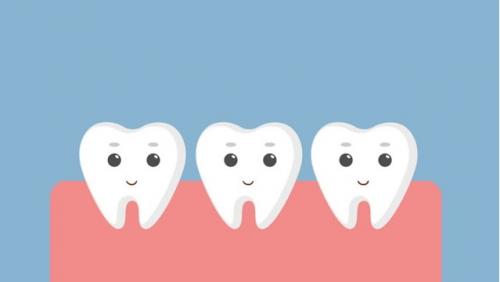Dental Care for Newborn Baby

Have you ever wondered whether there is a need to look after
the child's first teeth since they fall out? “Well, healthy-looking teeth and
good dental habits should start from a very young age.” Says Dr. Kartik who is
one of the best dentists in Vashi, Navi Mumbai. Here’s how you take care of your
kid,s oral hygiene and in different stages of your life.
For newborns up
to a period
when baby teeth
erupt (3-6 months)
gently wipe the gums with a damp cloth after each feeding to remove
plaque. A child's first teeth
will usually come
in at around
six months of
age. Therefore parents should
brush the child's
teeth twice a
day using a soft
bristle child-sized toothbrush
and a dab
of fluoride toothpaste.
Children aged 6 and above begin to miss their baby teeth and form their
permanent teeth. At this age help your child to start learning how to how to
brush his or her teeth
independently. Supervise your
child brushing from
time to time to ensure that the right technique is used. At the age of three, your child will have his full set
of baby teeth. Many parents are concerned with using fluoride toothpaste
because of the risk of fluorosis which is having white spots
on teeth. However,
it is important
to switch to
one as the benefits
of cavity protection
outweigh the risk
and fluoride helps
to strengthen tooth enamel and prevent tooth decay.
FAQ
There are several
questions that you
might have as
a parent about
your child’s dental health.
Here are a
few of the
questions that are
frequently asked by the
parents as stated by
the specialists of
Pulp Dental Clinic which is one of the best dental clinics
in Nungambakkam, Chennai.
• Will constant breathing through the mouth will affect
oral health?
Yes, many parents
do not know
that such habits
will lead to abnormal facial and
dental development such
as long narrow
faces and mouths, gummy smile, gingivitis, and crooked
teeth. It will be good to seek help from an orthodontist or ENT specialist to
get the problem resolved.
• How to fight cavities more effectively?
Tooth decay is the most common problem that children
face. Here are some preventive tips to
consider-
- Encourage your baby
to drink from a cup at the age of six months and to discourage drinking from a
bottle after a year.
- Avoid giving a
child sugary drinks such as fruit juices that are having high sugar content.
Instead, just offer milk or water as drinks.
- Also, limit the
amount of sweet food your child receives. Make an effort to visually check a
child's mouth weekly for signs of cavities.
• Should shaky baby teeth be removed?
Yes, shaky baby teeth should be removed if they cause pain
when chewing food and if your child is not brushing the area to avoid bleeding
and pain.
• If my child's front teeth are sticking outwards should
I be concerned?
You should consult your dentist on whether early orthodontic
intervention is required for your child.
Front teeth that protrude outwards are more prone to trauma, chipping,
and fracture.
• When can my child start wearing braces?
The best time for a child to get dental braces depends on
the severity and cause of the misalignment of a child's teeth. You’ll be good
to get a dental consult after the front teeth erupt. Typically treatment with
dental braces begins when a child has all of his or her adult teeth which is
around at the age of 12. At this age, children will generally have this full
set of teeth. It is important to visit a dentist for regular dental checks.
In general, good dental habits will help a child to go a long way into adulthood. So help your child to
cultivate them in their growing years. Few things that you can do to help your
child maintain overall oral health are-
• Create a habit of brushing twice daily after the meal.
This will help to remove the plaque from the teeth & especially from the
gum-line which is one of the major causes of periodontitis. However, excessive
brushing will damage the enamel of the teeth. So avoid brushing more than twice
a day.
• Do not brush immediately after eating. Acidic foods sometimes may soften the enamel
& when you will brush immediately after having such foods, it will cause
severe damage to the enamel.
• Create a habit of flossing. It is necessary to remove plaque from the
areas where your regular toothbrush is not able to clean. Take a floss of
around 18 cm in length & make sure that you are not using the same part of
the floss for two different teeth.
• Always use a soft bristle brush. Sometimes people believe that hard bristles
are more capable of removing the plaque. But this is not true. It totally
depends upon how you brush. You should use a small circular motion & try to
clean the hard to reach areas first.
• Use an antibacterial mouthwash as it will prevent the
growth of harmful bacterias in your mouth. There are several other types
of mouthwash available in the market. You can choose one based on your requirement.
• Eat healthy foods to prevent oral diseases. Make sure you eat enough fruits &
vegetables to meet the demand for vitamins & minerals in your body.
Post Your Ad Here
Comments